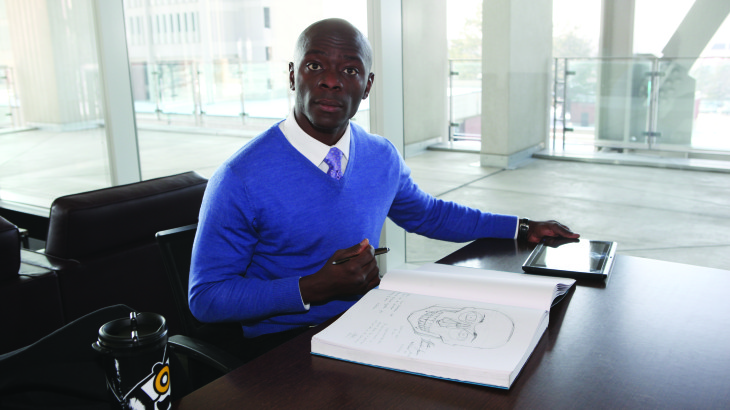Olaotan “Ola” Elenitoba-Johnson, a pre-biomedical engineering student with a focus on biodesign, is on a mission to treat deviated septae, and other cartilage abnormalities, without surgery. He calls it Sculptene, and it is a human-enzyme-based therapy that can be injected into a patient to enhance remodeling of the body’s own tissue.
For people with a deviated septum, Sculptene would be used instead of surgical correction of the nasal passage. They would receive injections with Sculptene, which would help remodel and correct the structural defect.
“The single largest benefit of this technology is in cost,” Elenitoba-Johnson says. “It eliminates the need for general anesthesia, scalpels and antibiotics. Post-operational recovery time is greatly reduced. Additionally, there is no risk of reopening surgical sites when the wound dressings are removed.”
The hope of Sculptene is to eliminate surgery. It is derived from human cells and can be antigenically typed to be used in the same manner as blood products. The application of Sculptene is not limited to the face. It could be used for treating cervical bone spurs, ossified tendons and cartilage anywhere in the body.
Elenitoba-Johnson developed his idea in a class called INVENT!, where students spend 10 hours a week inventing a biomedical device, design or therapeutic.
“This technology could revolutionize surgeries in developing countries and reduce overhead costs in developed countries,” says Holly Holman, a bioengineer who taught the INVENT! class.



